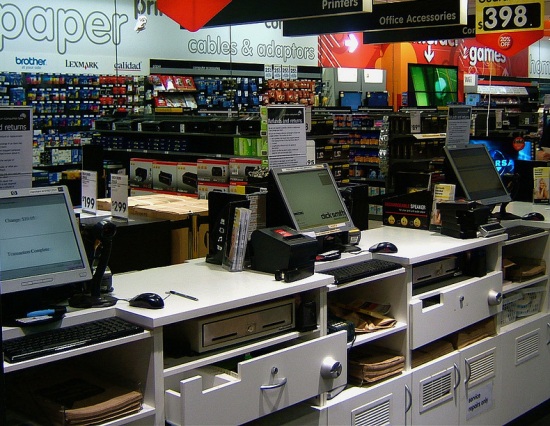With disposable income at an all-time low, workers are trying to find ways of making every penny count. Many, in fact, have given up shopping in independent stores under the belief that items are cheaper in large chain stores, which tend to buy in products in larger numbers.

However, consumer group Which? have put paid to this misconception, stating that electrical goods are often just as cheap in independently run retail commercial properties as they are in well-known national chains.
More than 1,200 independent retailers of electrical goods in the UK buy their stock through Euronics, Europe’s most popular electrical buying group. As part of a study into consumer value, Which? researchers compared prices of items in five independent stores which use Euronics as a supplier with the same products in large chains. These included Debenhams, House of Fraser, PC World, Comet, Selfridges and British Home Stores.
The results showed that, contrary to popular belief, chain stores were not always the cheaper option, with the majority of products being either exactly the same price in both independent and chain owned shops, or with only a slight variation in price on some larger items.
A Euronics kettle retailed at exactly the same price in the five independent stores included in the study as in the four larger stores which stocked it. It was a similar story with the Euronics supplied television set, which all five independent stores and five chain stores sold for near identical prices.
Meanwhile, a washing machine reversed the theory that all chain stores sell items at the best value for consumers. Whilst all five Euronics retailers marketed the household essential at the same price, only one of the chain stores surveyed managed to beat their price, knocking £20.99 off the ticket price of the independent stores. Another chain brand matched the independent retailers’ price, while two further chains failed to beat the price set by Euronics retailers, adding £20 to the cost offered by the smaller businesses.
A spokesman for Which? says; “Our snapshot research has suggested that it’s possible to find prices that are as low as electrical superstore deals, while also supporting local businesses.”
Local businesses are certainly the primary area of the retail industry suffering at the hands of the economic conditions, with hundreds expected to enter administration before the double dip recession is resolved. Hopefully, with the latest studies from Which? showing that the high street can beat big brands in terms of cost on many occasions, the consumer tide will once more turn towards independent businesses, who need support in order to survive the coming months.
Do you tend to turn to large chain stores for electrical goods, or have you always supported independent retailers in your local area? Do you believe that supermarkets, who now tend to stock a large selection of electrical goods, are largely to blame for struggles faced by both independent retailers and large national companies?
Previous Post
High Streets Must Adapt to Online Shopping